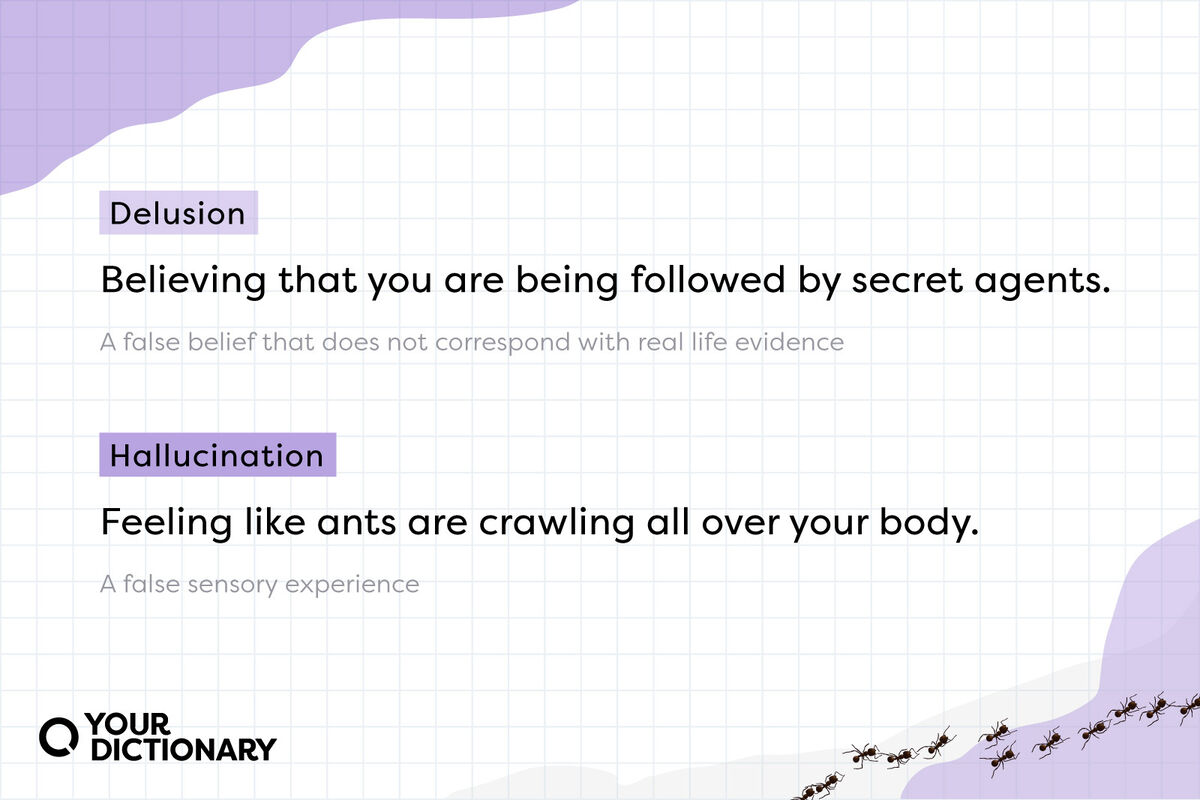
It’s easy to mix up delusion and hallucination in daily conversation. They both refer to things that are imagined or that other people can’t see or believe. However, delusions and hallucinations clinically and medically refer to two distinct symptoms that you should definitely know how to differentiate.
The Difference Between Hallucination and Delusion
The main difference between hallucinations and delusions is how people experience them. Hallucinations are specifically sensory, meaning you have seen, heard, smelled, tasted or felt something that isn’t actually there.
Delusions are conceptual. You may fully commit to a delusional belief even though you haven’t seen, heard, or experienced anything to suggest that belief.
Delusions: False Beliefs
A delusion is a false belief that does not correspond with real life evidence or your lived experience.
Outside of clinical psychology, people use delusional to refer to people who hold any belief considered to be false. For example, people often talk about “delusions of grandeur” when referring to someone who has an inflated sense of self, though actual delusions of grandeur affecting mental health do exist.
Examples of Delusions
The types of delusions a person can have will vary, but some of the most commonly reported delusions include:
- Believing that you are a celebrity, actor or person of importance (delusions of grandeur)
- Believing that you are being followed by secret agents
- Believing that your family is stealing from you
Hallucinations: False Sensory Experiences
A hallucination is a full on sensory experience of something that isn’t actually happening. To describe the type of hallucination, you may attach a sensory word before hallucination. For example, auditory hallucinations are hallucinations that affect your hearing.
Examples of Hallucinations
As they affect all five of your senses, hallucinations can come in near infinite forms. Some common hallucinations include:
- Hearing voices
- Seeing a person or object that isn’t actually there
- Feeling like ants are crawling all over your body
Seeing Isn’t Always Believing
Although hallucinations and delusions are distinct symptoms, some mental illnesses, including dementia and Alzheimer’s, may involve both at the same time.